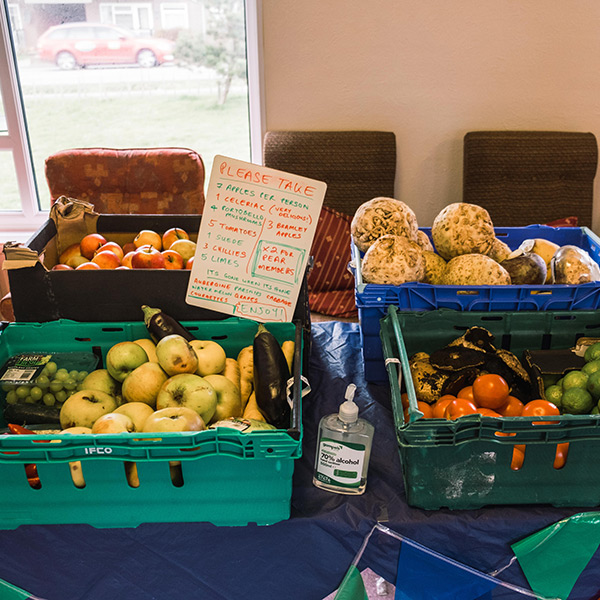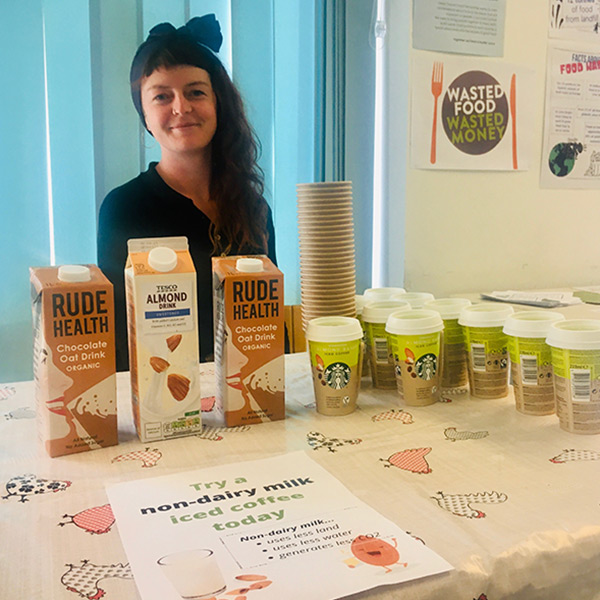Jargon Buster



Access to affordable healthy food is fundamental to health and wellbeing, with poor quality diet being one of the biggest contributors to ill health, reducing life expectancy and increasing years lived in ill health.
In the UK there has been a rise in emergency food providers such as food banks, designed as a short term solution to provide food for those unable to afford it.
Lewes District Food Partnership recognises the importance of building community and individual resilience to improve food security in the long term, moving from food bank dependency to empowerment.
A person accessing emergency food provision rarely just needs food. Affordable food schemes help to promote agency and choice, reduce stigma for clients, whilst helping to build skills and opportunities out of food poverty. In addition to providing food, the social and community aspects of eating are important for mental health and to support connection. Community food projects can be a useful hub to signpost to other services such as support around employment, childcare, benefits and access to community kitchens and other health / mental health / children’s services.
In this Jargon Buster we have provided examples and definitions of affordable and emergency food schemes. Our vision for Lewes District is equitable access to healthy affordable food for everyone, via a range of models. Emergency Food Provision Emergency Food Providers are groups or organisations which provide free or low cost food to people who struggle to afford sufficient food for their household. This is an umbrella term which covers a wide range of service models.
Foodbank
A foodbank is one type of emergency food provider. Foodbanks typically provide food for free or for a nominal charge, and there are usually certain criteria in place which determine access, typically proof of low income or a referral from a support agency. In the UK there are over 2000 foodbanks – 1200 are part of the Trussell Trust network and the remainder are independent.
Affordable Food Schemes
Affordable food schemes are projects which offer good quality, low cost food, which is often subsidised. These projects are typically positioned in low income neighbourhoods, where access to fresh local food is limited (Brighton & Hove Food Partnership). Affordable Food Schemes can include community supermarkets and pantries, as well as affordable veg boxes and low cost community cafes.
Community Supermarket or Pantry
Community supermarkets or pantries are membership schemes which offer low cost food to people, either for a small subscription fee or on a pay-as-you-feel basis. There are typically fewer eligibility criteria to join a community supermarket or pantry and members can often self-refer.
Social Supermarket
A social supermarket is a social enterprise, which operates as a non-profit shop. They sell food and other household goods at up to 70% discount.
Community Fridge
A Community Fridge is a space where everyone can share surplus food, including donations from local food businesses, producers and households (Hubbub). They are located within a particular town or area and anyone in the community can take food from them for free and put food in to share. Hubbub coordinates the UK Community Fridge Network, which includes over 200 Community Fridges.
Pay-As-You-Feel
The ‘pay as you feel’ concept encourages people to think about what that plate of food means to them, and value it in whatever way they can. By choosing not to segregate people based on financial circumstances projects are funded in a way that does not patronise those who need it and those who want to support it. Those in need are not degraded or shamed for taking a free or cheap meal, likewise those who can afford it are not pestered into more and more donations. Everyone is equal in getting fed, it is up to the individual to pay what they feel (The Real Junk Food Project).
Food Waste
Unlike food surplus, food waste occurs when food is not redistributed and goes into the bin. Projects which redistribute surplus food are helping to reduce food waste.
FareShare
FareShare is the UK’s national network of charitable food redistributors. It is made up of 18 independent organisations, which take good quality surplus food from across the food industry and redistribute it to more than 10,000 frontline charities and community groups (FareShare).
Food Surplus
Food surplus occurs when the supply of food exceeds the demand for it. There are many ways and reasons this can happen and it can happen at every stage from farm to fridge to fork involving farmers, manufacturers, retail outlets, hospitality providers and individual households (Bread & Butter Thing). Many emergency food providers redistribute surplus food either via links with local suppliers or through FareShare membership.
Food Security
Food security occurs when all people are able to access enough safe and nutritious food to meet their requirements for a healthy life, in ways that the planet can sustain into the future (Sustainable Food Places). Emergency food providers and affordable food schemes all seek to improve food security in their local community. Food security can also be improved through local infrastructure, access to welfare payments and cash first schemes.
Cash First Schemes
A cash first approach broadly refers to the idea of giving people cash (or sometimes vouchers), rather than food. Local authorities can deliver cash first schemes that provide support directly to recipients via a cash payment, in addition to their usual benefits, rather than by subsidising foodbanks and other emergency food providers. More widely ‘cash-first’ approaches can also include emergency food providers which prefer to provide help in money, for example by giving out vouchers rather than food parcels where possible.
Sustainable
A project is sustainable if it is able to continue over a period of time. Sustainability can refer to funding – projects are more likely to be sustainable if they are not solely reliant on donations, as well as the environment – food production is only sustainable if it doesn’t negatively impact the environment on a long term basis.
